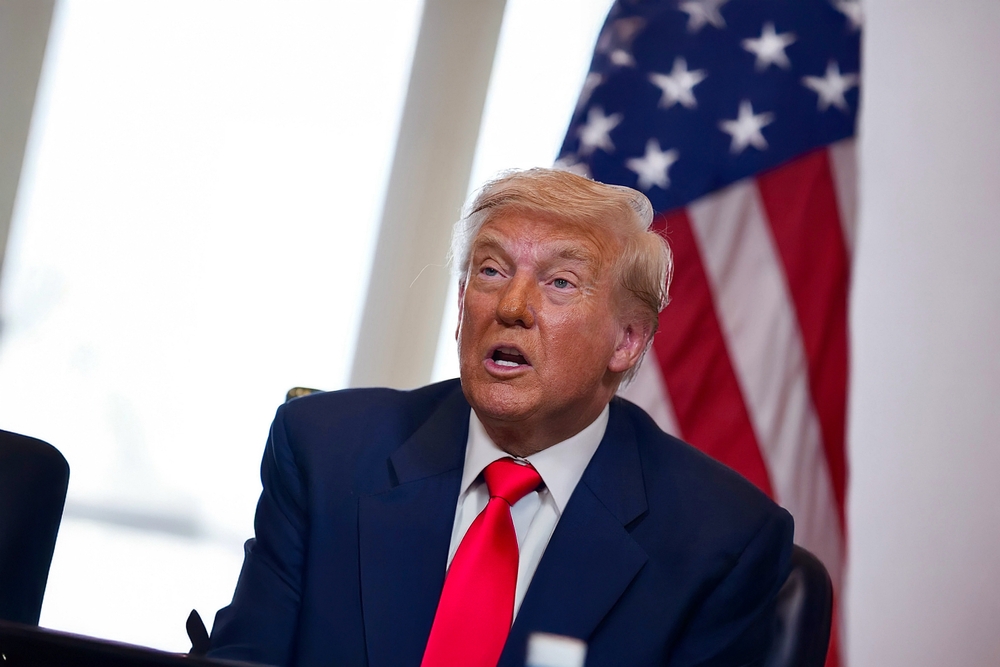President Donald Trump has signed a short-term spending bill that ends the longest government shutdown in US history. He approved the measure just hours after the House of Representatives voted 222 to 209 in favor on Wednesday night. The Senate had narrowly passed the same bill two days earlier.
In the Oval Office, Trump announced that the government would “resume normal operations” after “people were hurt so badly” during the 43-day closure. Since October, many government services had been halted. Around 1.4 million federal employees had been either working without pay or placed on unpaid leave. Food aid programs were frozen, and nationwide air travel was severely disrupted.
Federal operations begin returning to normal
Government services are expected to restart within days, offering relief before the busy Thanksgiving holiday. Air travel disruptions should ease as the Federal Aviation Administration restores full staffing levels. The agency had reduced air traffic because of severe staff shortages during the shutdown.
The crisis even affected lawmakers traveling to Washington. Wisconsin Republican Derrick Van Orden rode his motorcycle nearly 1,000 miles to cast his vote in the House before the bill reached Trump’s desk.
The measure only funds the government until 30 January, forcing lawmakers to negotiate again soon to avoid another shutdown.
Trump points to Democrats as cause of the shutdown
Before signing the bill, Trump placed the blame on the Democratic Party. “They did it purely for political reasons,” he said, urging voters to remember “what they’ve done to our country” in future elections.
Although Democrats are a minority in the Senate, they managed to block the earlier version of the funding bill. Republicans were seven votes short of the 60 needed to pass it. Democrats demanded an extension of healthcare subsidies for low-income Americans, which are set to expire at the end of the year.
Republicans argued that the healthcare issue could be discussed once the government reopened. On Sunday, eight Senate Democrats broke ranks and voted for the funding deal in exchange for a promise of a December vote on the subsidies.
That decision angered many in the Democratic Party and drew criticism from House Minority Leader Hakeem Jeffries and California Governor Gavin Newsom.
Divisions deepen within the Democratic Party
Senate Minority Leader Chuck Schumer called the agreement “a failure to fix America’s healthcare crisis.” Virginia Senator Tim Kaine, one of the Democrats who supported the deal, defended his vote. He said federal workers in his state were “saying thank you” for reopening the government and restoring their pay.
Just hours before the House vote, Democrats celebrated the swearing-in of their newest member, Adelita Grijalva. She had been elected on 23 September but could not take office earlier because the House had been out of session since 19 September. Grijalva now fills the seat once held by her late father, Raul Grijalva, who died earlier this year.
New lawmaker joins campaign for Epstein file release
Democrats quickly enlisted Grijalva’s support for a petition demanding the release of documents related to the late financier Jeffrey Epstein. The petition must sit for seven legislative days before it can advance. After that period, House leadership is required to schedule a vote within two legislative days.
House Speaker Mike Johnson surprised lawmakers by announcing he would schedule the vote for next week.
What the spending bill delivers
The deal reached over the weekend extends federal funding until 30 January. It provides full-year funding for the Department of Agriculture, along with financing for military construction projects and legislative agencies.
The legislation ensures that all federal employees receive back pay for the shutdown period. It also funds the Supplemental Nutrition Assistance Program, which provides food support to one in eight Americans, until next September.
In addition, the package guarantees a December vote on extending healthcare subsidies — a key demand that had fueled weeks of political gridlock and intensified partisan tensions in Congress.


